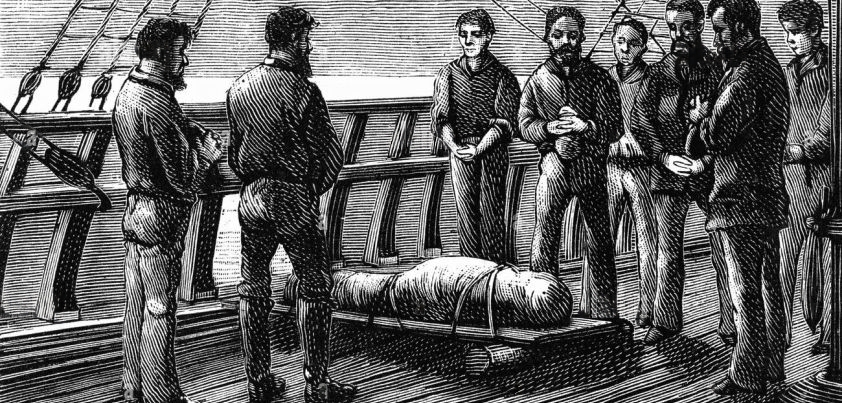 This Anton Chekhov story contrasts the attitudes towards social injustice of two Russian soldiers returning home by ship after serving in the Far East. Both are dying of tuberculosis, and neither survives the voyage. One (Gusev) is an uneducated, superstitious peasant who passively accepts his lot. The other (Pavel Ivanovich) is a bitter, fallen intellectual who looks down on “lesser” men and claims to actively oppose the Russian social system. Themes include social class, passivity vs. activism, memory and imagination, loneliness and alienation, the inconsequence of human suffering and death in the context of the glory of nature. More…
This Anton Chekhov story contrasts the attitudes towards social injustice of two Russian soldiers returning home by ship after serving in the Far East. Both are dying of tuberculosis, and neither survives the voyage. One (Gusev) is an uneducated, superstitious peasant who passively accepts his lot. The other (Pavel Ivanovich) is a bitter, fallen intellectual who looks down on “lesser” men and claims to actively oppose the Russian social system. Themes include social class, passivity vs. activism, memory and imagination, loneliness and alienation, the inconsequence of human suffering and death in the context of the glory of nature. More…
Category Archives: Short Stories
Babylon Revisited
 The protagonist in this bittersweet story from F. Scott Fitzgerald is in the process of rebuilding his life after losing everything in the aftermath of the 1929 stock market cash. Along with many other Americans caught up in the hedonistic 1920s Paris lifestyle, he had partied hard and drank to excess. When his wife died as he was recovering in a sanitarium, he was forced to give up custody of his then seven-year-old daughter. Two years later, he is determined to win her back. Themes: alcohol abuse and reform, wealth and poverty, fatherly love, self-discipline, alienation, guilt and regret, hope. More…
The protagonist in this bittersweet story from F. Scott Fitzgerald is in the process of rebuilding his life after losing everything in the aftermath of the 1929 stock market cash. Along with many other Americans caught up in the hedonistic 1920s Paris lifestyle, he had partied hard and drank to excess. When his wife died as he was recovering in a sanitarium, he was forced to give up custody of his then seven-year-old daughter. Two years later, he is determined to win her back. Themes: alcohol abuse and reform, wealth and poverty, fatherly love, self-discipline, alienation, guilt and regret, hope. More…
The Lone Ranger and Tonto Fistfight in Heaven
 This story by Sherman Alexie highlights the difficulty tribal Native-Americans have assimilating into American society. A Spokane Indian recalls his breakup with a white kindergarten teacher he loved. Their relationship was one of constant fights and arguments, often over his excessive drinking. Tortured by violent dreams, he returned to the community of the reservation. After several idle months he once again finds work in the outside world, where a call from his ex-girlfriend suggests they still have feelings for one another but are too afraid to pursue them. Themes include community vs. isolation, prejudice, alcohol abuse, love and hatred. More…
This story by Sherman Alexie highlights the difficulty tribal Native-Americans have assimilating into American society. A Spokane Indian recalls his breakup with a white kindergarten teacher he loved. Their relationship was one of constant fights and arguments, often over his excessive drinking. Tortured by violent dreams, he returned to the community of the reservation. After several idle months he once again finds work in the outside world, where a call from his ex-girlfriend suggests they still have feelings for one another but are too afraid to pursue them. Themes include community vs. isolation, prejudice, alcohol abuse, love and hatred. More…
Axolotl
 Julio Cortázar gives away the plot of this story in the first paragraph: There was a time when I thought a great deal about the axolotls… Now I am an axolotl. The rest of the story talks about this Kafkaesque transformation, which is partial and may have only occurred in the protagonist’s mind. He (the axolotl part) sits in an aquarium tank watching himself (the unchanged part) looking in from the other side. Considering his life from this perspective seemingly builds the man’s self-esteem, and he no longer feels the need to return. Themes: loneliness, alienation, obsession, connection, enlightenment, inertia. More…
Julio Cortázar gives away the plot of this story in the first paragraph: There was a time when I thought a great deal about the axolotls… Now I am an axolotl. The rest of the story talks about this Kafkaesque transformation, which is partial and may have only occurred in the protagonist’s mind. He (the axolotl part) sits in an aquarium tank watching himself (the unchanged part) looking in from the other side. Considering his life from this perspective seemingly builds the man’s self-esteem, and he no longer feels the need to return. Themes: loneliness, alienation, obsession, connection, enlightenment, inertia. More…
Beyond the Wall of Sleep
 In this story by H. P. Lovecraft, a psychiatric hospital intern discovers that beyond the wall of sleep we exist as a brother of light able to traverse multiple planes and universes. Intrigued by a dying dullard’s dreams about things he couldn’t possibly have experienced or imagined, he uses a telepathic device to read the man’s mind. As the patient dies, he catches a glimpse of these other worlds and meets the man’s majestic other self. The story raises an interesting question: Which of the two states is the true reality? Themes include dreams, alternative reality, death, the supernatural. More…
In this story by H. P. Lovecraft, a psychiatric hospital intern discovers that beyond the wall of sleep we exist as a brother of light able to traverse multiple planes and universes. Intrigued by a dying dullard’s dreams about things he couldn’t possibly have experienced or imagined, he uses a telepathic device to read the man’s mind. As the patient dies, he catches a glimpse of these other worlds and meets the man’s majestic other self. The story raises an interesting question: Which of the two states is the true reality? Themes include dreams, alternative reality, death, the supernatural. More…
Greasy Lake
 This coming of age story from T. C. Boyle is about three nineteen-year-old boys who think it is “good to be bad”. It begins on a lighthearted note. The boys try to look and act tough, but cruise the streets in their parents’ station wagons and get their highs from sniffing glue. One night, an innocent prank goes terribly wrong. A case of mistaken identity results in a stranger being beaten unconscious, an attempted rape, discovery of a dead body, and the trashing of a family car. The events prove the danger of pretending to be someone you are not. More…
This coming of age story from T. C. Boyle is about three nineteen-year-old boys who think it is “good to be bad”. It begins on a lighthearted note. The boys try to look and act tough, but cruise the streets in their parents’ station wagons and get their highs from sniffing glue. One night, an innocent prank goes terribly wrong. A case of mistaken identity results in a stranger being beaten unconscious, an attempted rape, discovery of a dead body, and the trashing of a family car. The events prove the danger of pretending to be someone you are not. More…
The Dog of Tithwal
 This story from Saadat Hasan Manto takes place during the first Indo-Pakistan (Kashmir) War, which commenced just two months after the 1947 formation of the two countries. The war was a form of “Mexican standoff”. This is reflected in the plot, where soldiers break their boredom with occasional shots towards the enemy camp that have no chance of hitting anyone. The treatment and killing of Jhun Jhun for “refusing” to take sides is symbolic of the suffering of civilians caught up in the conflict. Themes: natural peace and harmony vs. mankind’s propensity for violence, futility, innocence, distrust, cruelty, human suffering. More…
This story from Saadat Hasan Manto takes place during the first Indo-Pakistan (Kashmir) War, which commenced just two months after the 1947 formation of the two countries. The war was a form of “Mexican standoff”. This is reflected in the plot, where soldiers break their boredom with occasional shots towards the enemy camp that have no chance of hitting anyone. The treatment and killing of Jhun Jhun for “refusing” to take sides is symbolic of the suffering of civilians caught up in the conflict. Themes: natural peace and harmony vs. mankind’s propensity for violence, futility, innocence, distrust, cruelty, human suffering. More…
Servant Girl
 In this story by Estrella Alfon, a hard working Filipino servant girl works for a mistress who is a heavy drinker and often verbally and physically abusive. She rejects a local man who says he loves her, and is infatuated with an “angelic” cochero who once helped her after a fall. After a particularly brutal beating, she runs away to look for the cochero, who she fantasizes is in love with her. She finds him, but he doesn’t remember her. Seeing things more clearly, she returns home. Themes include social class, innocence, workplace abuse, humiliation, perseverance, fantasy, violence, enlightenment. More…
In this story by Estrella Alfon, a hard working Filipino servant girl works for a mistress who is a heavy drinker and often verbally and physically abusive. She rejects a local man who says he loves her, and is infatuated with an “angelic” cochero who once helped her after a fall. After a particularly brutal beating, she runs away to look for the cochero, who she fantasizes is in love with her. She finds him, but he doesn’t remember her. Seeing things more clearly, she returns home. Themes include social class, innocence, workplace abuse, humiliation, perseverance, fantasy, violence, enlightenment. More…
The Swimmer
 John Cheever’s The Swimmer satirizes New York high society through a quirky mix of realism and surrealism. Neddy Merrill is arrogant, pretentious and narcissistic. His attempt to become recognized as a legendary adventurer by “swimming” home from a party through a summer storm symbolizes risk-taking that may have led to the loss of his wealth, respect, family and health. Along the way, he encounters others in the community: the principled Hallorens who stand up for their beliefs; the down-to-earth Biswangers he has socially shunned for not “belonging to his set”; and the loving mistress he has cruelly cast aside. More…
John Cheever’s The Swimmer satirizes New York high society through a quirky mix of realism and surrealism. Neddy Merrill is arrogant, pretentious and narcissistic. His attempt to become recognized as a legendary adventurer by “swimming” home from a party through a summer storm symbolizes risk-taking that may have led to the loss of his wealth, respect, family and health. Along the way, he encounters others in the community: the principled Hallorens who stand up for their beliefs; the down-to-earth Biswangers he has socially shunned for not “belonging to his set”; and the loving mistress he has cruelly cast aside. More…
The Things They Carried
 The strength of this Vietnam War memoir by Tim O’Brien is the matter-of-fact way the life of the soldiers (“grunts”) is portrayed. Although the military and survival equipment carried by the men is listed, the major theme of the story is the emotional burdens they carried – both those the men brought to the war, and those they took on during its course. First Lieutenant Jimmy Cross learns an important lesson: in order to do your duty and survive the war, you need to find a way to let go of these. Other themes: war, love, individual and collective responsibility. More…
The strength of this Vietnam War memoir by Tim O’Brien is the matter-of-fact way the life of the soldiers (“grunts”) is portrayed. Although the military and survival equipment carried by the men is listed, the major theme of the story is the emotional burdens they carried – both those the men brought to the war, and those they took on during its course. First Lieutenant Jimmy Cross learns an important lesson: in order to do your duty and survive the war, you need to find a way to let go of these. Other themes: war, love, individual and collective responsibility. More…
Christmas Storms and Sunshine
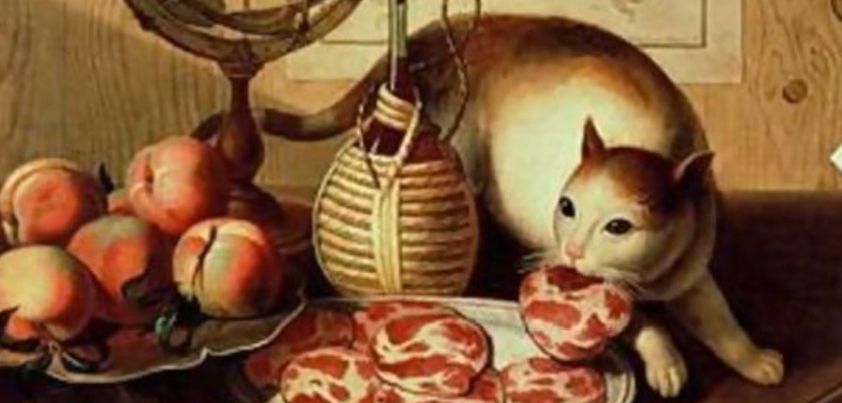 This tale by Elizabeth Gaskell uses Christmas as a backdrop to deliver a touching message about rivalry, jealousy, forgiveness and being a good neighbor. Two men living in the same rooming house work for rival newspapers. The papers support opposing political views, and are openly critical of each other. Loyalty to their employers has resulted in a rift between the two men; loyalty to their husbands, coupled with petty jealousies, has resulted in hatred between their wives. A hungry cat, seriously ill child, Christmas carolers, and a plate of homemade sausages bring everybody together. More…
This tale by Elizabeth Gaskell uses Christmas as a backdrop to deliver a touching message about rivalry, jealousy, forgiveness and being a good neighbor. Two men living in the same rooming house work for rival newspapers. The papers support opposing political views, and are openly critical of each other. Loyalty to their employers has resulted in a rift between the two men; loyalty to their husbands, coupled with petty jealousies, has resulted in hatred between their wives. A hungry cat, seriously ill child, Christmas carolers, and a plate of homemade sausages bring everybody together. More…
Amnesty
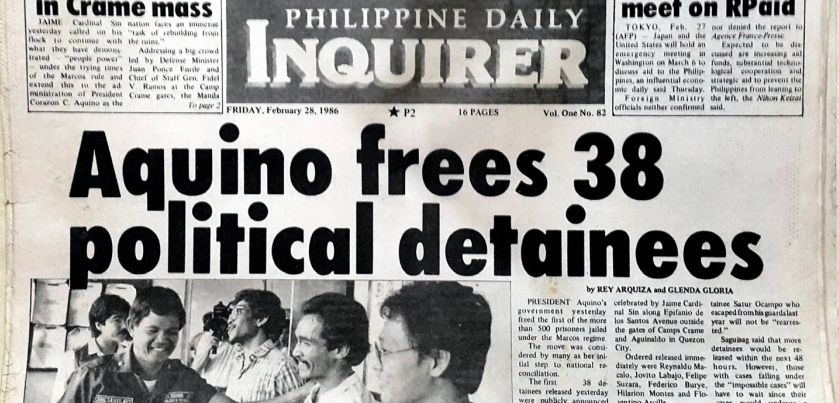 In this story by Jose Dalisay Jr., a chance encounter on a bus contrasts the directions taken by two student revolutionaries during the Philippine’s Marcos dictatorship. One stayed true to the cause and has just been released from prison under a general amnesty declared by the incoming government. After six years in jail, she appears physically broken but emotionally strong. The other chose “survival”, privately supporting the cause but publically embracing and prospering under the corrupt system. He fears for his comfortable lifestyle. Themes include oppression, courage and remaining true to a cause, sacrifice, hypocrisy, guilt and regret, hope. More…
In this story by Jose Dalisay Jr., a chance encounter on a bus contrasts the directions taken by two student revolutionaries during the Philippine’s Marcos dictatorship. One stayed true to the cause and has just been released from prison under a general amnesty declared by the incoming government. After six years in jail, she appears physically broken but emotionally strong. The other chose “survival”, privately supporting the cause but publically embracing and prospering under the corrupt system. He fears for his comfortable lifestyle. Themes include oppression, courage and remaining true to a cause, sacrifice, hypocrisy, guilt and regret, hope. More…
The Shawl / Rosa
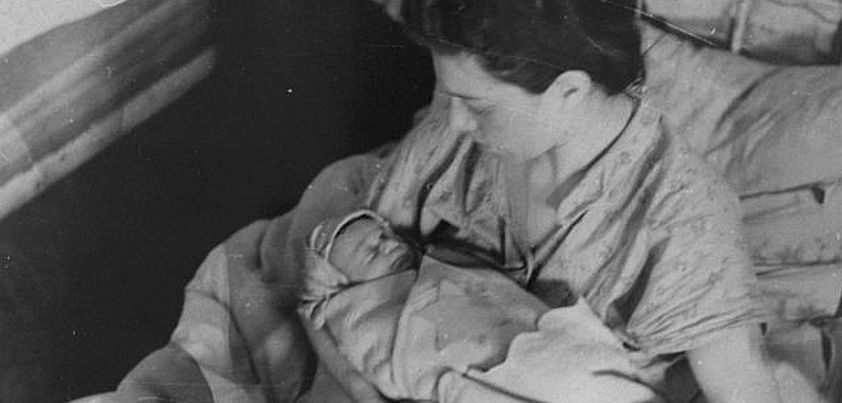 Today we are featuring two award-winning stories from Cynthia Ozick. The first, The Shawl, is set in Second World War Poland and deals with the horrors of the holocaust as experienced a young mother (Rosa), her infant child (Magda), and fourteen-year-old-niece (Stella). The second story, Rosa, is a sequel to the first. Set in the USA over thirty years later, it demonstrates the devastating long-term effects of the women’s war-time experiences. More…
Today we are featuring two award-winning stories from Cynthia Ozick. The first, The Shawl, is set in Second World War Poland and deals with the horrors of the holocaust as experienced a young mother (Rosa), her infant child (Magda), and fourteen-year-old-niece (Stella). The second story, Rosa, is a sequel to the first. Set in the USA over thirty years later, it demonstrates the devastating long-term effects of the women’s war-time experiences. More…
Victoria and Her Kimono
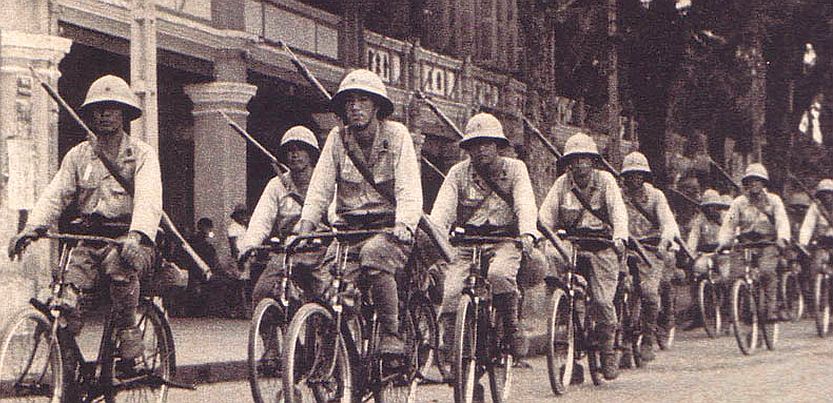 This story by M. Shanmughalingam is in two parts. The first is a humorous description of pre-World War 2 goings-on at one of Kuala Lumpur’s most prestigious secondary schools. Told from the point of view of an “old school” disciplinarian English teacher, it has a Monty Python-like ring to it. The second deals with the brutality and privation associated with Japanese occupation and how, thanks to a home-made kimono and a few words of Japanese, the Tigress of Asia (the teacher’s wife) saves his life. Themes include colonialism, the power of language, suffering, courage, resilience. More…
This story by M. Shanmughalingam is in two parts. The first is a humorous description of pre-World War 2 goings-on at one of Kuala Lumpur’s most prestigious secondary schools. Told from the point of view of an “old school” disciplinarian English teacher, it has a Monty Python-like ring to it. The second deals with the brutality and privation associated with Japanese occupation and how, thanks to a home-made kimono and a few words of Japanese, the Tigress of Asia (the teacher’s wife) saves his life. Themes include colonialism, the power of language, suffering, courage, resilience. More…
In the Withaak’s Shade
 Like a number of Herman Bosman‘s Oom Schalk Lourens stories, In the Withaak’s Shade is a satire of the life of Bushveld Afrikaners embellished in the form of a “tall tale”. It tells of a farmer’s unlikely encounter with a leopard as he was lying down under a withaak tree while busily searching for some lost cattle. Several of Bosman’s common themes (storytelling and the indolence, independence and mateship of the Boer landowners) are obvious. Two others (the mass hysteria that follows the reported sighting, and destruction of wildlife) are not. More…
Like a number of Herman Bosman‘s Oom Schalk Lourens stories, In the Withaak’s Shade is a satire of the life of Bushveld Afrikaners embellished in the form of a “tall tale”. It tells of a farmer’s unlikely encounter with a leopard as he was lying down under a withaak tree while busily searching for some lost cattle. Several of Bosman’s common themes (storytelling and the indolence, independence and mateship of the Boer landowners) are obvious. Two others (the mass hysteria that follows the reported sighting, and destruction of wildlife) are not. More…
Sweat
 At its simplest, this story by Zora Neale Hurston is about a cheating, abusive husband who got what was coming to him. Everyone in Delia’s poor black community seems to know about her brutal mistreatment at the hands of husband Sykes. However, nobody offers to help. She finally reaches breaking point, and threatens to go to the “white folks” if he touches her again. Sykes wants Delia’s house and devises a plan to kill her but, in an ironic twist, she manages to turn the tables. Themes: oppression, good vs. evil, hard work vs. laziness, domestic abuse, adultery, courage, greed. More…
At its simplest, this story by Zora Neale Hurston is about a cheating, abusive husband who got what was coming to him. Everyone in Delia’s poor black community seems to know about her brutal mistreatment at the hands of husband Sykes. However, nobody offers to help. She finally reaches breaking point, and threatens to go to the “white folks” if he touches her again. Sykes wants Delia’s house and devises a plan to kill her but, in an ironic twist, she manages to turn the tables. Themes: oppression, good vs. evil, hard work vs. laziness, domestic abuse, adultery, courage, greed. More…
A Joke
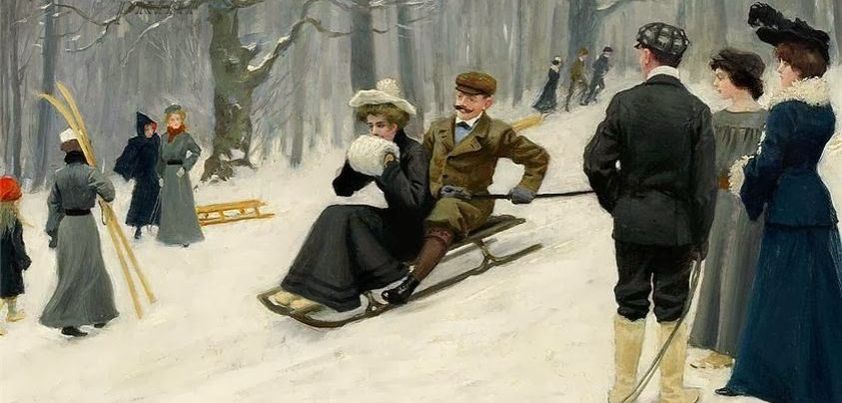 In this story by Anton Chekhov, a young man plays a trick on a terrified lady-friend by whispering a ghostly I love you as they speed down a mountain on a toboggan. Unsure of what she heard, the woman asks the man to repeat the ride over and over. Each time they do so, he whispers the same words. Soon it becomes an obsession and every day she wants to go up the mountain to listen for the words. Her reaction when she thinks she has the answer is a surprise. Themes include fear, innocence, playful deception, confusion, obsession, regret. More…
In this story by Anton Chekhov, a young man plays a trick on a terrified lady-friend by whispering a ghostly I love you as they speed down a mountain on a toboggan. Unsure of what she heard, the woman asks the man to repeat the ride over and over. Each time they do so, he whispers the same words. Soon it becomes an obsession and every day she wants to go up the mountain to listen for the words. Her reaction when she thinks she has the answer is a surprise. Themes include fear, innocence, playful deception, confusion, obsession, regret. More…
Bloodchild
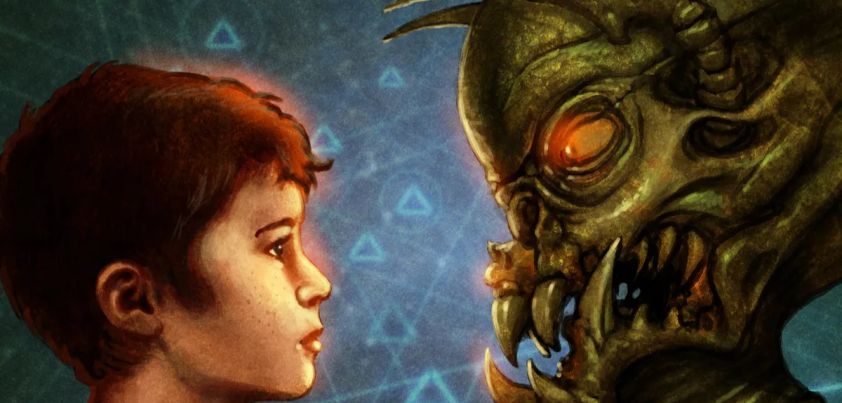 Octavia Butler described this as her “pregnant man” story. A colony of humans fleeing some kind of trouble takes shelter on a planet inhabited by giant, insect-like beings. The insects (Tlics) develop a symbiotic relationship with the humans (Terrans). In exchange for protection, adolescent boys are allocated to Tlic families, where they must incubate a Tlic mother’s eggs. The eggs are implanted in their abdomen, necessitating a rather gruesome but usually successful delivery process. Understandably, the Terran protagonist who has just reached maturity is having second thoughts about this. Themes: exploitation vs. interdependence, gender roles, fear, sacrifice vs. jealousy, love. More…
Octavia Butler described this as her “pregnant man” story. A colony of humans fleeing some kind of trouble takes shelter on a planet inhabited by giant, insect-like beings. The insects (Tlics) develop a symbiotic relationship with the humans (Terrans). In exchange for protection, adolescent boys are allocated to Tlic families, where they must incubate a Tlic mother’s eggs. The eggs are implanted in their abdomen, necessitating a rather gruesome but usually successful delivery process. Understandably, the Terran protagonist who has just reached maturity is having second thoughts about this. Themes: exploitation vs. interdependence, gender roles, fear, sacrifice vs. jealousy, love. More…
Three Thanksgivings
 In this story by Charlotte Gilman, a widow faces pressure from three sides. Her married children want her to come and live with them, and the man who holds a mortgage over her large family home wants to marry her. She doesn’t want to move or remarry, doesn’t have the means to repay the mortgage, and has three Thanksgivings to make a decision or find the money. In helping five hundred other women, she builds a new life and solves the problem. Themes include gender expectations, financial independence, self-sufficiency, entrepreneurship, community.
In this story by Charlotte Gilman, a widow faces pressure from three sides. Her married children want her to come and live with them, and the man who holds a mortgage over her large family home wants to marry her. She doesn’t want to move or remarry, doesn’t have the means to repay the mortgage, and has three Thanksgivings to make a decision or find the money. In helping five hundred other women, she builds a new life and solves the problem. Themes include gender expectations, financial independence, self-sufficiency, entrepreneurship, community.
More…
Eleonora
 In this atypical Edgar Allan Poe story there is madness, but not the destructive kind; death, but not the gruesome kind; and a spirit, but not a frightening one. Also unusual is Poe’s extensive use of poetic prose. His description of the idyllic valley may be an allusion to the Garden of Eden, leaving readers to wonder if the couple’s incestuous lovemaking beneath the serpent-like trees was the “apple” that destroyed their paradise. Themes: the beauty of nature, innocence, passion, love, death, moving on. Poe’s message: true love endures; despite the loss of a loved one, life must go on. More…
In this atypical Edgar Allan Poe story there is madness, but not the destructive kind; death, but not the gruesome kind; and a spirit, but not a frightening one. Also unusual is Poe’s extensive use of poetic prose. His description of the idyllic valley may be an allusion to the Garden of Eden, leaving readers to wonder if the couple’s incestuous lovemaking beneath the serpent-like trees was the “apple” that destroyed their paradise. Themes: the beauty of nature, innocence, passion, love, death, moving on. Poe’s message: true love endures; despite the loss of a loved one, life must go on. More…
The Khaki Coat
 This story by Nhat Tien is a satirical criticism of the heavily regulated early days of the Vietnamese socialist government. The lack of social equality and opportunity is reflected in the life of a girl who supports her younger siblings by hawking items she digs up in graveyards. She is arrested when a widow recognizes the fashionable khaki coat her husband was buried in. However, she is soon free again after arguing in court that her actions were consistent with Communist ideology. Themes include social equality and opportunity, family, poverty, survival, superstition.
This story by Nhat Tien is a satirical criticism of the heavily regulated early days of the Vietnamese socialist government. The lack of social equality and opportunity is reflected in the life of a girl who supports her younger siblings by hawking items she digs up in graveyards. She is arrested when a widow recognizes the fashionable khaki coat her husband was buried in. However, she is soon free again after arguing in court that her actions were consistent with Communist ideology. Themes include social equality and opportunity, family, poverty, survival, superstition.
More…
Residents and Transients
 The protagonist in this Bobbie Ann Mason story is at a crossroads. Having returned to temporarily live on her parent’s Kentucky farm after they moved to Florida, she hates the idea of going back to suburban living. Her salesman husband has a new post and is away looking at houses in a nearby city, and in his absence she has been having an affair with a local man. She is caught between two places and two men. Her cats may prove the deciding factor. Themes: change (past vs. present), city vs. country living, rootedness vs mobilty, uncertainty, choices and consequences. More…
The protagonist in this Bobbie Ann Mason story is at a crossroads. Having returned to temporarily live on her parent’s Kentucky farm after they moved to Florida, she hates the idea of going back to suburban living. Her salesman husband has a new post and is away looking at houses in a nearby city, and in his absence she has been having an affair with a local man. She is caught between two places and two men. Her cats may prove the deciding factor. Themes: change (past vs. present), city vs. country living, rootedness vs mobilty, uncertainty, choices and consequences. More…
The Treasure in the Forest
 In this adventure story by H. G. Wells, two men arriving by canoe on a deserted Borneo island have killed another to get their hands on a map. As well as including some strange symbols and unintelligible Chinese writing, the map shows the location of a buried treasure. When the men reach the spot, they are delighted to find the treasure intact. As they carry some of it away, they learn to their cost the meaning of the symbols on the map, and why its owner was smiling as they killed him. Themes include greed, crime and punishment, karma. More…
In this adventure story by H. G. Wells, two men arriving by canoe on a deserted Borneo island have killed another to get their hands on a map. As well as including some strange symbols and unintelligible Chinese writing, the map shows the location of a buried treasure. When the men reach the spot, they are delighted to find the treasure intact. As they carry some of it away, they learn to their cost the meaning of the symbols on the map, and why its owner was smiling as they killed him. Themes include greed, crime and punishment, karma. More…
Bullet in the Brain
 This Tobias Wolff story features a protagonist who is so unlikable that it seems a relief when a bank robber silences him. Sarcastic to the point of being obnoxious, Anders provides some humorous moments (Love the comment about The Killers!) before getting the richly deserved Bullet in the Brain. Unlike Bierce’s Occurrence at Owl Creek Bridge, where the protagonist enjoys an uplifting moment-of-death experience, Anders re-lives a childhood baseball game. The highlights of his life were the simple pleasures of youth (such as enjoying the musical quality of a strange accent), before losing his innocence to conceit, disillusionment and cynicism. More…
This Tobias Wolff story features a protagonist who is so unlikable that it seems a relief when a bank robber silences him. Sarcastic to the point of being obnoxious, Anders provides some humorous moments (Love the comment about The Killers!) before getting the richly deserved Bullet in the Brain. Unlike Bierce’s Occurrence at Owl Creek Bridge, where the protagonist enjoys an uplifting moment-of-death experience, Anders re-lives a childhood baseball game. The highlights of his life were the simple pleasures of youth (such as enjoying the musical quality of a strange accent), before losing his innocence to conceit, disillusionment and cynicism. More…
The Man Who Loved Flowers
 In this story from Stephen King, people are cheered by the sight of a well-dressed young man walking down a New York City street one spring evening. He has the appearance of a man in love, which is confirmed when he buys a bouquet of flowers for his girlfriend Norma. The twist comes when he hands the flowers to a young woman and savagely beats her to death when she says her name is not Norma. Norma is long dead, but the obsessed former admirer is still looking for her. Themes include appearance vs. reality, love, obsession, denial, madness, murder. More…
In this story from Stephen King, people are cheered by the sight of a well-dressed young man walking down a New York City street one spring evening. He has the appearance of a man in love, which is confirmed when he buys a bouquet of flowers for his girlfriend Norma. The twist comes when he hands the flowers to a young woman and savagely beats her to death when she says her name is not Norma. Norma is long dead, but the obsessed former admirer is still looking for her. Themes include appearance vs. reality, love, obsession, denial, madness, murder. More…
Midsummer
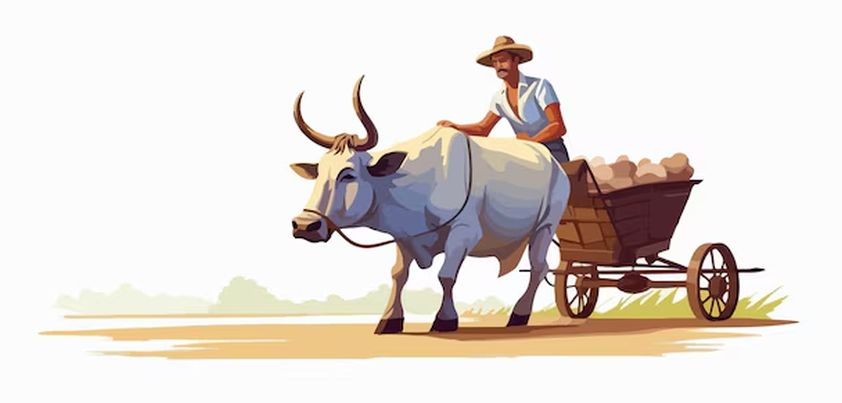 This story by Manuel E. Arguilla describes an innocent but sexually charged encounter between a Filipino man and woman on a hot midsummer day. The man, who is driving a bullock cart along an isolated stretch of road, notices a young, surprisingly sweet and fresh woman on her way to collect water. He stops and follows her up a dry gorge to a well, where he watches her draw water. After she leaves and later returns for more water, they strike up a conversation. Themes include sexuality, physical attraction, shyness and respect. More…
This story by Manuel E. Arguilla describes an innocent but sexually charged encounter between a Filipino man and woman on a hot midsummer day. The man, who is driving a bullock cart along an isolated stretch of road, notices a young, surprisingly sweet and fresh woman on her way to collect water. He stops and follows her up a dry gorge to a well, where he watches her draw water. After she leaves and later returns for more water, they strike up a conversation. Themes include sexuality, physical attraction, shyness and respect. More…
The Tractor and the Corn Goddess
 Renowned Indian writer Mulk Raj Anand was well known for his socialist views. These come to the fore in this tongue-in cheek story about a landowner’s progressive son who returns from overseas with such revolutionary ideas as turning his farm into a villager-owned co-operative and importing a tractor to improve the lives of workers. The focus of the story is the tractor, and the landowner’s ingenious method of overcoming the villagers’ fears and indignation associated with the tractor’s “rape” of their Corn Goddess. Themes: social conscience, change, religious and cultural differences, suspicion, pride. More…
Renowned Indian writer Mulk Raj Anand was well known for his socialist views. These come to the fore in this tongue-in cheek story about a landowner’s progressive son who returns from overseas with such revolutionary ideas as turning his farm into a villager-owned co-operative and importing a tractor to improve the lives of workers. The focus of the story is the tractor, and the landowner’s ingenious method of overcoming the villagers’ fears and indignation associated with the tractor’s “rape” of their Corn Goddess. Themes: social conscience, change, religious and cultural differences, suspicion, pride. More…
The Princess of Nebraska
 In this story by Yiyun Li, a pregnant Chinese graduate student has traveled from Nebraska to Chicago for an abortion. The father, a former “dan” actor, is still in China and not returning messages. Accompanying her is a Chinese activist, who was the dan actor’s boyfriend before fleeing the country. Both are still in love with the actor, and the activist would prefer she keep the baby to lure him to America. In the closing paragraph, her resolve appears to weaken as the baby begins to move. Themes include repression vs. freedom, loneliness, sexuality, identity, choice vs. consequences. More…
In this story by Yiyun Li, a pregnant Chinese graduate student has traveled from Nebraska to Chicago for an abortion. The father, a former “dan” actor, is still in China and not returning messages. Accompanying her is a Chinese activist, who was the dan actor’s boyfriend before fleeing the country. Both are still in love with the actor, and the activist would prefer she keep the baby to lure him to America. In the closing paragraph, her resolve appears to weaken as the baby begins to move. Themes include repression vs. freedom, loneliness, sexuality, identity, choice vs. consequences. More…
Poovan Pazham
 Sometimes famous stories of the past, like this one by Vaikom Muhammad Basheer, solve problems in ways that would not be acceptable today. A mismatched couple (an uneducated “town rowdy” and university-educated, “fashionable lady”) begin their marriage at odds with one another. Frustrated by trying to change her husband into her idea of a gentleman, the haughty wife is constantly nagging and ill-tempered. The man calmly puts up with this until a quest to find poovan pazham (dessert bananas) proves too much. Themes include non-traditional marriage, social expectations vs. personal freedom, marital quest, gratitude, “education”, guilt, love, nostalgia. More…
Sometimes famous stories of the past, like this one by Vaikom Muhammad Basheer, solve problems in ways that would not be acceptable today. A mismatched couple (an uneducated “town rowdy” and university-educated, “fashionable lady”) begin their marriage at odds with one another. Frustrated by trying to change her husband into her idea of a gentleman, the haughty wife is constantly nagging and ill-tempered. The man calmly puts up with this until a quest to find poovan pazham (dessert bananas) proves too much. Themes include non-traditional marriage, social expectations vs. personal freedom, marital quest, gratitude, “education”, guilt, love, nostalgia. More…
How Muster-Master Stoneman Earned his Breakfast
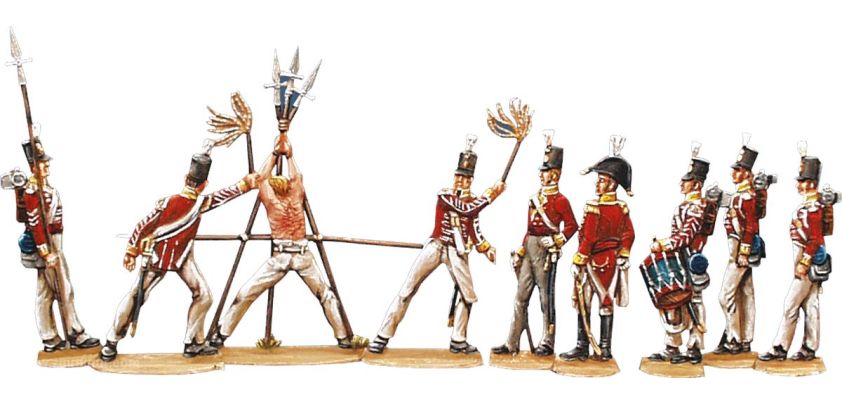 This story by Price Warung (aka William Astley) is one of a series dealing with Australia’s early days as a penal colony. Set in the late 1830s, its major theme is the cruel and inhuman treatment of convicts who challenged the system. The story is critical of both the system itself, which in many cases turned petty thieves into hardened criminals, and the brutality of the officers who administered it. A feature of the story is Warung’s extensive use of satire (from the title to terms like “the mild discipline” (of) “a genial and loving motherland”) in highlighting these points. More…
This story by Price Warung (aka William Astley) is one of a series dealing with Australia’s early days as a penal colony. Set in the late 1830s, its major theme is the cruel and inhuman treatment of convicts who challenged the system. The story is critical of both the system itself, which in many cases turned petty thieves into hardened criminals, and the brutality of the officers who administered it. A feature of the story is Warung’s extensive use of satire (from the title to terms like “the mild discipline” (of) “a genial and loving motherland”) in highlighting these points. More…
The Flight
 There are two “flights” in this story by Kamala Das. The first occurs after a successful sculptor finds city living and her city models devoid of inspiration. Once dependent on her husband, who is now disabled and dependent on her, she has a new sense of control over her life. They move to a dream house by the sea where, re-inspired, she becomes infatuated with a seventeen-year-old nude model. She once again “takes flight” upon finding her husband having sex with the girl, this time into the sea. Themes include marriage, lust, gender roles, control, art, betrayal. More…
There are two “flights” in this story by Kamala Das. The first occurs after a successful sculptor finds city living and her city models devoid of inspiration. Once dependent on her husband, who is now disabled and dependent on her, she has a new sense of control over her life. They move to a dream house by the sea where, re-inspired, she becomes infatuated with a seventeen-year-old nude model. She once again “takes flight” upon finding her husband having sex with the girl, this time into the sea. Themes include marriage, lust, gender roles, control, art, betrayal. More…
2 B R 0 2 B
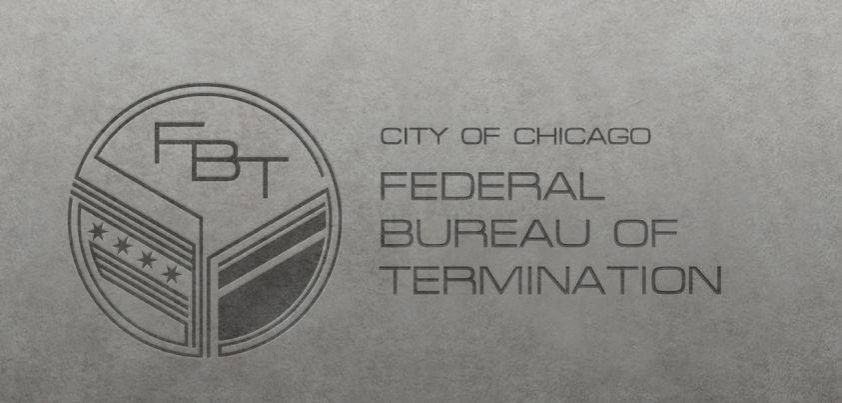 Kurt Vonnegut liked to write about imaginary worlds. Some time ago we featured Harrison Bergeron, another Vonnegut story. This was about a dystopian world; a world where most people are unhappy and afraid because they are not treated fairly. In 2BR02B, Earth at first appears perfect. There are no poor, no slums, no prisons, no wars. There is no insanity, disability or disease. Even aging has been cured. Everything is wonderful… unless you want to bring a child into the world. As the story develops, we soon see that this utopian sounding future masks yet another dystopian society. More…
Kurt Vonnegut liked to write about imaginary worlds. Some time ago we featured Harrison Bergeron, another Vonnegut story. This was about a dystopian world; a world where most people are unhappy and afraid because they are not treated fairly. In 2BR02B, Earth at first appears perfect. There are no poor, no slums, no prisons, no wars. There is no insanity, disability or disease. Even aging has been cured. Everything is wonderful… unless you want to bring a child into the world. As the story develops, we soon see that this utopian sounding future masks yet another dystopian society. More…
You’ll Learn Soon Enough
 This tale by Lao Khamhom is a loosely based sequel to one of our earlier stories, As If It Had Never Happened. Road and bridge building projects have connected a once isolated Thai rice farming village to the outside world. A young girl, excited about her first bus-trip to a nearby town to sell vegetables, is befuddled by a petty extortion attempt at a government counterinsurgency checkpoint. Later, she experiences real graft when the “concessionaire” of a newly built highway refuses to allow her and other village busses to proceed. Themes include innocence, family, progress, connectivity, change, fear, oppression, corruption. More…
This tale by Lao Khamhom is a loosely based sequel to one of our earlier stories, As If It Had Never Happened. Road and bridge building projects have connected a once isolated Thai rice farming village to the outside world. A young girl, excited about her first bus-trip to a nearby town to sell vegetables, is befuddled by a petty extortion attempt at a government counterinsurgency checkpoint. Later, she experiences real graft when the “concessionaire” of a newly built highway refuses to allow her and other village busses to proceed. Themes include innocence, family, progress, connectivity, change, fear, oppression, corruption. More…
Mr Know-All
 This story by W. Somerset Maugham takes place at sea. A narrator we learn almost nothing about is forced to share a cabin with a man he takes an instant disliking to because of little more than his name. The other man plays an organizational role in many aspects of ship life to the point of being everywhere and always. The narrator finds him hearty, jovial, loquacious and argumentative. He calls him the best hated man in the ship. It is not until the man ‘loses’ a bet about pearls that the narrator develops a grudging respect for him. More…
This story by W. Somerset Maugham takes place at sea. A narrator we learn almost nothing about is forced to share a cabin with a man he takes an instant disliking to because of little more than his name. The other man plays an organizational role in many aspects of ship life to the point of being everywhere and always. The narrator finds him hearty, jovial, loquacious and argumentative. He calls him the best hated man in the ship. It is not until the man ‘loses’ a bet about pearls that the narrator develops a grudging respect for him. More…
The Crocodile’s Lady
 Like one of our earlier Manoj Das stories, Farewell to a Ghost, this story illustrates the prevalence of superstition in traditional Indian village life. A foreign professor visits a remote village and is fascinated by the story of the Crocodile’s Lady. In appreciation for her protection, villagers take it in turns to feed and care for the now ninety-plus year-old. As a young woman, she had been carried off by a crocodile and reappeared a decade later, claiming to have fallen in love with and lived with it in the river. Themes include religious faith, the supernatural, unnatural love, loyalty. More…
Like one of our earlier Manoj Das stories, Farewell to a Ghost, this story illustrates the prevalence of superstition in traditional Indian village life. A foreign professor visits a remote village and is fascinated by the story of the Crocodile’s Lady. In appreciation for her protection, villagers take it in turns to feed and care for the now ninety-plus year-old. As a young woman, she had been carried off by a crocodile and reappeared a decade later, claiming to have fallen in love with and lived with it in the river. Themes include religious faith, the supernatural, unnatural love, loyalty. More…
My Lord, the Baby / The Child’s Return
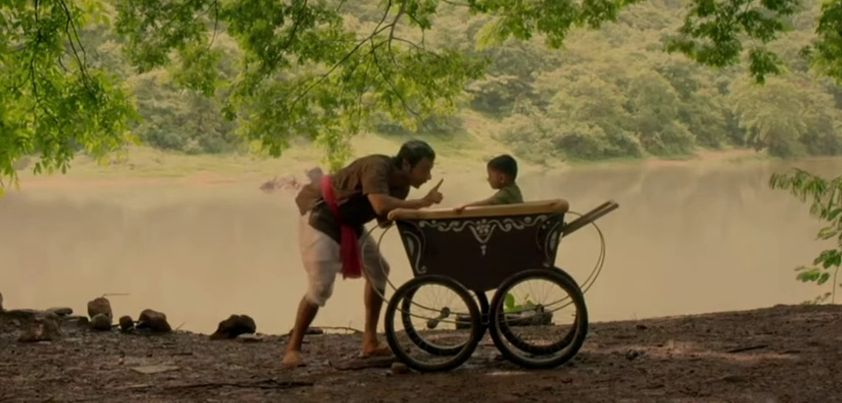 Major themes of this story by Rabindranath Tagore are duty, love and sacrifice. A young magistrate places the faithful servant who raised him in charge of his own son. After the boy disappears in a flood, the servant is discharged. Miraculously, he has a son of his own who he comes to believe is the lost boy reincarnate. He spends everything he has raising his son to the same standard as the dead boy and, when he becomes too old to work, “returns” the boy to the magistrate. Other themes include loss, guilt and redemption, ingratitude. More…
Major themes of this story by Rabindranath Tagore are duty, love and sacrifice. A young magistrate places the faithful servant who raised him in charge of his own son. After the boy disappears in a flood, the servant is discharged. Miraculously, he has a son of his own who he comes to believe is the lost boy reincarnate. He spends everything he has raising his son to the same standard as the dead boy and, when he becomes too old to work, “returns” the boy to the magistrate. Other themes include loss, guilt and redemption, ingratitude. More…
The Grave
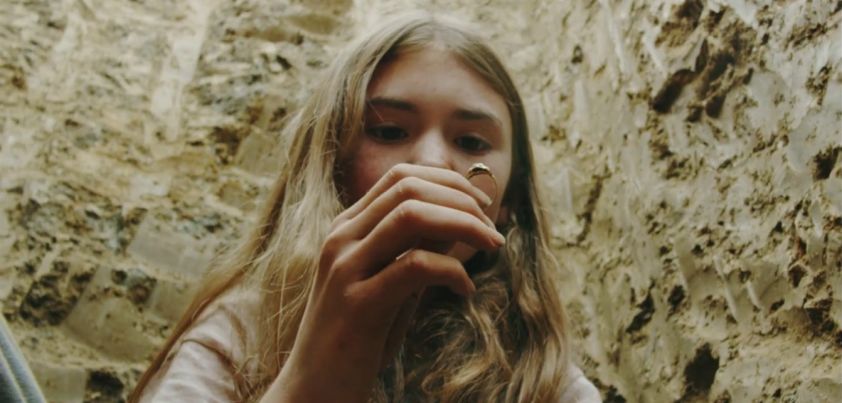 In this coming of age story by Katherine Anne Porter, a motherless nine-year-old girl defies social convention by wearing similar day clothes to her brother, and wandering the woods freely with him. Two events bring about an epiphany in her life. Trading of an object she finds in an open grave for a gold ring brings about the first stirrings of womanhood. Seeing unborn kittens in the womb of a dead rabbit adds to the picture of what it is to be female. Themes include the cycle of life (youthful innocence, adulthood, birth and death), matriarchy, gender roles, poverty. More…
In this coming of age story by Katherine Anne Porter, a motherless nine-year-old girl defies social convention by wearing similar day clothes to her brother, and wandering the woods freely with him. Two events bring about an epiphany in her life. Trading of an object she finds in an open grave for a gold ring brings about the first stirrings of womanhood. Seeing unborn kittens in the womb of a dead rabbit adds to the picture of what it is to be female. Themes include the cycle of life (youthful innocence, adulthood, birth and death), matriarchy, gender roles, poverty. More…
Cathedral
 In Raymond Carver’s Cathedral, a troubled, disillusioned man with a cynical view of the world is suddenly confronted by his metaphorical blindness. Ironically, the person who brings about this epiphany is a blind friend of his wife. The story begins with the husband full of sarcasm (Maybe I could take him bowling…) as the couple discuss the blind man’s visit. He has pre-conceived ideas about the blind and is surprised when their visitor doesn’t fit the stereotype. Themes include friendship and marriage, insecurity, alienation and loneliness, creativity and imagination, perception (looking vs. seeing). More…
In Raymond Carver’s Cathedral, a troubled, disillusioned man with a cynical view of the world is suddenly confronted by his metaphorical blindness. Ironically, the person who brings about this epiphany is a blind friend of his wife. The story begins with the husband full of sarcasm (Maybe I could take him bowling…) as the couple discuss the blind man’s visit. He has pre-conceived ideas about the blind and is surprised when their visitor doesn’t fit the stereotype. Themes include friendship and marriage, insecurity, alienation and loneliness, creativity and imagination, perception (looking vs. seeing). More…
Storyteller
 This story by Leslie Marmon Silko retraces the life of a Yupic Eskimo woman up to the point she is jailed for murder. The story deals with the effects of “Gussick” (American) miners and traders on traditional village life, the way the village community supports her family of eccentric outcasts, how her sexual molestation by her grandmother’s partner drives her into the arms of American miners, and her quest for retribution against a Gussick storekeeper who sold poisoned liquor to her parents. Themes include cultural loss, exploitation, alienation, community, revenge, and storytelling. More…
This story by Leslie Marmon Silko retraces the life of a Yupic Eskimo woman up to the point she is jailed for murder. The story deals with the effects of “Gussick” (American) miners and traders on traditional village life, the way the village community supports her family of eccentric outcasts, how her sexual molestation by her grandmother’s partner drives her into the arms of American miners, and her quest for retribution against a Gussick storekeeper who sold poisoned liquor to her parents. Themes include cultural loss, exploitation, alienation, community, revenge, and storytelling. More…
Papa, What Does that Spell?
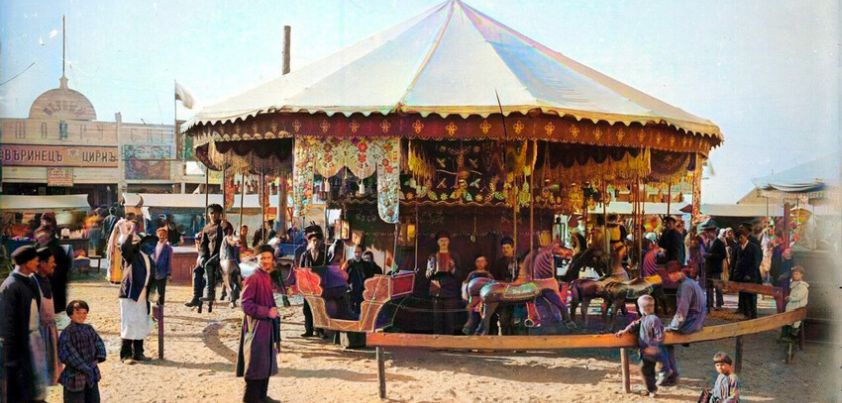 In this story by Vasily Aksyonov (Aksenov), a Russian factory worker reviews his life and relationships as he spends a day with his six-year-old daughter while his wife is at a “meeting”. He is growing apart from a once close-knit group of childhood friends, and faces a growing gap with his wife who is completing a doctoral degree and may be having an affair. In an epiphany, he realizes that being there for his daughter as she grows up is the most important thing in the world. Themes include childhood innocence, fatherhood, social relationships, marriage disconnect, deceit. More…
In this story by Vasily Aksyonov (Aksenov), a Russian factory worker reviews his life and relationships as he spends a day with his six-year-old daughter while his wife is at a “meeting”. He is growing apart from a once close-knit group of childhood friends, and faces a growing gap with his wife who is completing a doctoral degree and may be having an affair. In an epiphany, he realizes that being there for his daughter as she grows up is the most important thing in the world. Themes include childhood innocence, fatherhood, social relationships, marriage disconnect, deceit. More…
The Treasure of Abbot Thomas
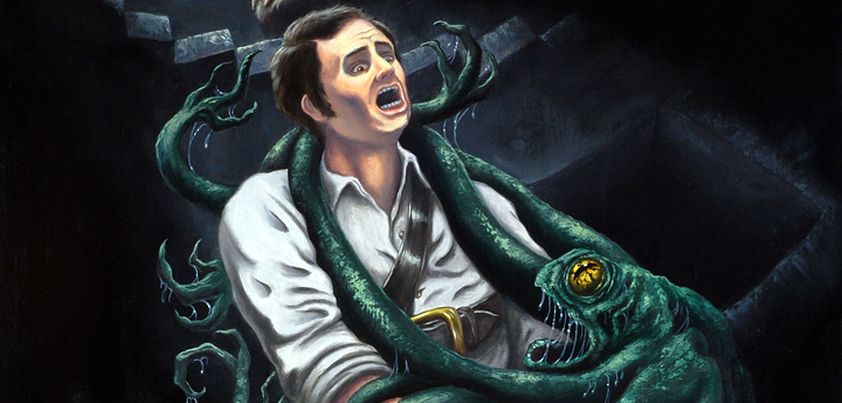 In this story by M. R. James, a British antiquary comes across an old book written in Latin that tells of a German monastery in which a fortune in gold is believed to have been hidden. He believes the key to the treasure lies on a stained-glass window removed from the Abby and returned to England when the monastery was closed. He finds the window, decodes the message hidden on it and, despite the warning contained in the message, finds the gold. His only problem… dealing with the treasure’s monstrous guardian. Themes include treasure hunting, cryptography, fear, the supernatural. More…
In this story by M. R. James, a British antiquary comes across an old book written in Latin that tells of a German monastery in which a fortune in gold is believed to have been hidden. He believes the key to the treasure lies on a stained-glass window removed from the Abby and returned to England when the monastery was closed. He finds the window, decodes the message hidden on it and, despite the warning contained in the message, finds the gold. His only problem… dealing with the treasure’s monstrous guardian. Themes include treasure hunting, cryptography, fear, the supernatural. More…
Burning in the Rain
 To fully appreciate this story and the book it came from, The House of Hunger, one needs to understand the troubled life of its Zimbabwean author, Dambudzo Marechera. A central motif is the “ape in the mirror,” which increasingly dominates the protagonist’s psyche. This could represent Marechera’s personal demons (mental illness, alcohol, drugs and violence) and/or be a thinly disguised metaphor for the devastating “guerrilla war” that brought Robert Mugabe’s ANU government to power. The latter is symbolized in the penultimate paragraph by the rain (that) sounded like the microscopic commotion of six million little people fleeing a national catastrophe. More…
To fully appreciate this story and the book it came from, The House of Hunger, one needs to understand the troubled life of its Zimbabwean author, Dambudzo Marechera. A central motif is the “ape in the mirror,” which increasingly dominates the protagonist’s psyche. This could represent Marechera’s personal demons (mental illness, alcohol, drugs and violence) and/or be a thinly disguised metaphor for the devastating “guerrilla war” that brought Robert Mugabe’s ANU government to power. The latter is symbolized in the penultimate paragraph by the rain (that) sounded like the microscopic commotion of six million little people fleeing a national catastrophe. More…
Teenage Wasteland
 This story by Anne Tyler deals with different perspectives on growing up and parenting. Published in 1983, the story pre-dates the influence of modern devices such as PCs, the Internet, mobile phones, and even CD players. After-school entertainment involved TV, listening to music (on radio, vinyl records or cassettes) and neighborhood sport. However, many aspects of teenage life have remained unchanged. These include school and peer pressure, and dealing with parental authority and expectations. Without the right kind of support, young people having trouble dealing with these challenges must feel like life is a wasteland. More…
This story by Anne Tyler deals with different perspectives on growing up and parenting. Published in 1983, the story pre-dates the influence of modern devices such as PCs, the Internet, mobile phones, and even CD players. After-school entertainment involved TV, listening to music (on radio, vinyl records or cassettes) and neighborhood sport. However, many aspects of teenage life have remained unchanged. These include school and peer pressure, and dealing with parental authority and expectations. Without the right kind of support, young people having trouble dealing with these challenges must feel like life is a wasteland. More…
The Voice of God / Holy Panchayat
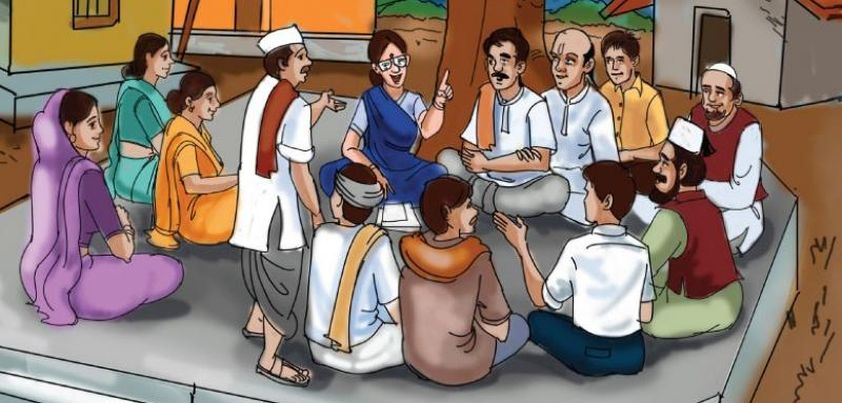 The major theme of this story by Premchand is justice. Two men who have been close friends since childhood fall out when one rules against the other in a dispute over the treatment of an aged aunt at the village Panchayat (council of elders). The roles are later reversed when the aggrieved friend, who still holds a grudge against the other, has to judge a complaint against him about a bullock he sold. Their rift is resolved when he sees that in dispensing justice, one must put personal feelings and friendships aside. Other themes include tradition, friendship, responsibility, impartiality. More…
The major theme of this story by Premchand is justice. Two men who have been close friends since childhood fall out when one rules against the other in a dispute over the treatment of an aged aunt at the village Panchayat (council of elders). The roles are later reversed when the aggrieved friend, who still holds a grudge against the other, has to judge a complaint against him about a bullock he sold. Their rift is resolved when he sees that in dispensing justice, one must put personal feelings and friendships aside. Other themes include tradition, friendship, responsibility, impartiality. More…
Mrs. Frola and Mr. Ponza, Her Son-in-Law
 In this story by Luigi Pirandello, a respected civil servant rents an apartment for himself and his wife, and another for his mother-in-law. Gossip rages when he doesn’t allow his wife to leave their apartment, or her mother to visit. He explains to a “ladies’ group” that his first wife (the mother-in-law’s daughter) is dead, and he is supporting her mother, who is crazy. The “mother-in-law” later argues that her son-in-law is the crazy one. Readers are left to decide which of the equally plausible stories is true. Themes include gossip vs. the right to privacy, judging by appearances, relativism. More…
In this story by Luigi Pirandello, a respected civil servant rents an apartment for himself and his wife, and another for his mother-in-law. Gossip rages when he doesn’t allow his wife to leave their apartment, or her mother to visit. He explains to a “ladies’ group” that his first wife (the mother-in-law’s daughter) is dead, and he is supporting her mother, who is crazy. The “mother-in-law” later argues that her son-in-law is the crazy one. Readers are left to decide which of the equally plausible stories is true. Themes include gossip vs. the right to privacy, judging by appearances, relativism. More…
A Vendetta
 This story by Guy de Maupassant features an old widow who lives in a small village in Southern Italy with her only son and his dog. One evening, the son is murdered. The mother is so saddened by this that she swears a vendetta against the killer. Every day, she sits by the window wondering how she, a weak old woman with no one to help her, can carry out her promise. Finally, she comes up with an idea and has her revenge. Themes include grief, vengeance, cruelty, the brutality and potential for injustice of the code of vendetta. More…
This story by Guy de Maupassant features an old widow who lives in a small village in Southern Italy with her only son and his dog. One evening, the son is murdered. The mother is so saddened by this that she swears a vendetta against the killer. Every day, she sits by the window wondering how she, a weak old woman with no one to help her, can carry out her promise. Finally, she comes up with an idea and has her revenge. Themes include grief, vengeance, cruelty, the brutality and potential for injustice of the code of vendetta. More…
A Wife’s Story
 This story by Bharati Mukherjee explores the cultural transformation that occurs when the wife of an Indian textile executive moves to New York on a two-year scholarship to complete a doctoral degree. The freedom she experiences when no longer bound by the traditions and strict social conventions of her homeland allows her to find her identity. The change is emphasized as she accompanies her husband around the city during a short visit partway through the course, and raises the question of how she will fare upon return to India. Themes include identity, communication, culture clash, gender roles, liberation. More…
This story by Bharati Mukherjee explores the cultural transformation that occurs when the wife of an Indian textile executive moves to New York on a two-year scholarship to complete a doctoral degree. The freedom she experiences when no longer bound by the traditions and strict social conventions of her homeland allows her to find her identity. The change is emphasized as she accompanies her husband around the city during a short visit partway through the course, and raises the question of how she will fare upon return to India. Themes include identity, communication, culture clash, gender roles, liberation. More…
Tickets, Please
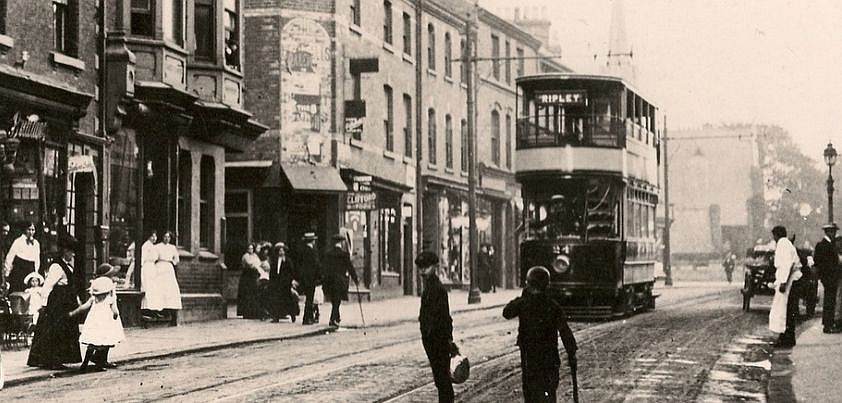 This story by D. H. Lawrence is a humorous take on gender dynamics during World War 1 after a disproportionate number of women entered the workforce to replace men sent to war. It deals with a group of hardened women (they fear nobody, and everybody fears them) working as tram conductors in England’s industrial Midlands. When a womanizing ticket inspector takes advantage of one too many of the conductors, they join forces and exact sweet revenge. An important (feminist) theme of the story is exploited women finding their collective “voice”. Other themes include power, desire, passion, rejection, vengeance and rage. More…
This story by D. H. Lawrence is a humorous take on gender dynamics during World War 1 after a disproportionate number of women entered the workforce to replace men sent to war. It deals with a group of hardened women (they fear nobody, and everybody fears them) working as tram conductors in England’s industrial Midlands. When a womanizing ticket inspector takes advantage of one too many of the conductors, they join forces and exact sweet revenge. An important (feminist) theme of the story is exploited women finding their collective “voice”. Other themes include power, desire, passion, rejection, vengeance and rage. More…
Autobiography of Irene
 The protagonist of this story by Silvina Ocampo believes she has psychic powers. Whatever she imagines, good or bad, takes place in real life. Afterwards, she completely forgets the person involved. Among these lost memories are those of her father and lover, both of whose death she foresaw. Now twenty-five, she foresees and is looking forward to her own death, believing that upon this her memories will be restored. Her biggest fear is NOT dying, which she addresses by allowing a stranger (or perhaps an alter ego) to write her autobiography. Themes include clairvoyance, destiny, alienation, solitude, memories, death. More…
The protagonist of this story by Silvina Ocampo believes she has psychic powers. Whatever she imagines, good or bad, takes place in real life. Afterwards, she completely forgets the person involved. Among these lost memories are those of her father and lover, both of whose death she foresaw. Now twenty-five, she foresees and is looking forward to her own death, believing that upon this her memories will be restored. Her biggest fear is NOT dying, which she addresses by allowing a stranger (or perhaps an alter ego) to write her autobiography. Themes include clairvoyance, destiny, alienation, solitude, memories, death. More…
A Game of Cards
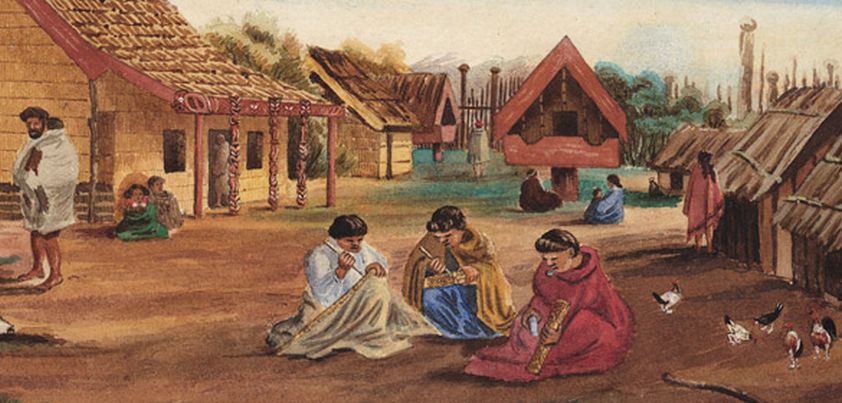 This early story by Witi Ihimaera examines the universal themes of love, family, community and mortality from a Maori perspective. A university student visiting his dying grandmother symbolizes the deep family connections among his people. The old woman’s only recreation over the years has been lively card nights with friends and neighbors. These symbolize the strong connection and, despite some good-natured cheating, unity among community members. The spontaneous gathering in her final hours demonstrates her community’s approach to death. Rather than shying away until after the event, they come together to pay respects and ease her passing. More…
This early story by Witi Ihimaera examines the universal themes of love, family, community and mortality from a Maori perspective. A university student visiting his dying grandmother symbolizes the deep family connections among his people. The old woman’s only recreation over the years has been lively card nights with friends and neighbors. These symbolize the strong connection and, despite some good-natured cheating, unity among community members. The spontaneous gathering in her final hours demonstrates her community’s approach to death. Rather than shying away until after the event, they come together to pay respects and ease her passing. More…